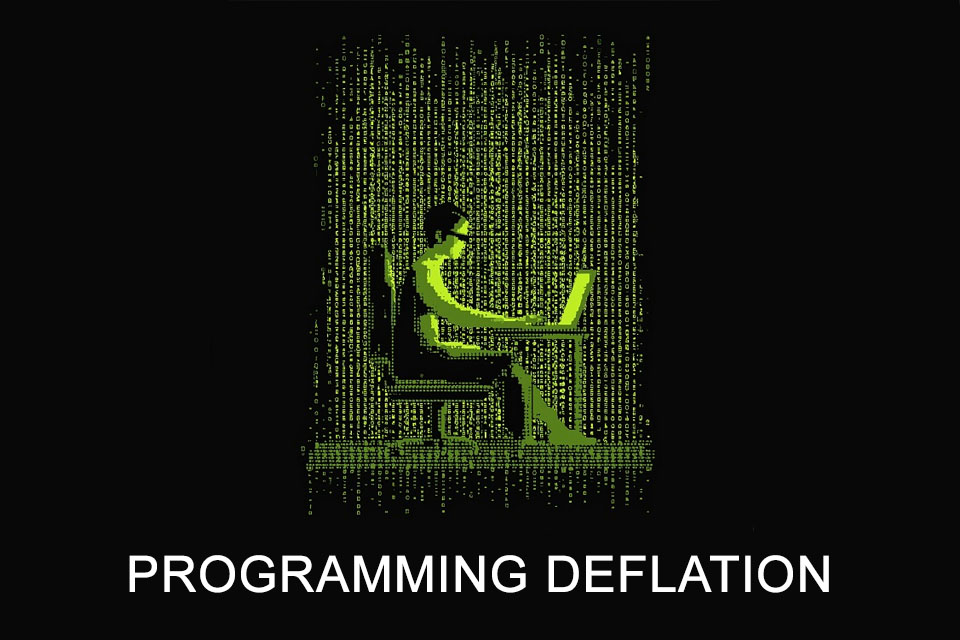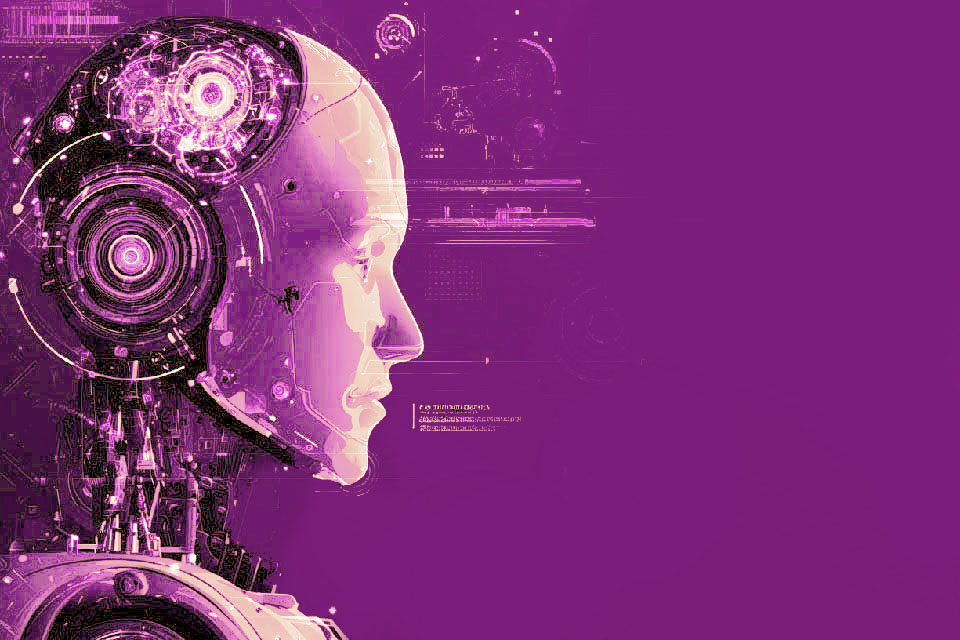What is Programming Deflation?
Smartpedia: Programming deflation describes the devaluation of individual programming skills due to the increasing use of AI-supported development tools.
Programming Deflation: When the value of individual programming gradually declines
The increasing use of AI-supported tools is influencing the practice of many professions and the perception of these activities. This can also be observed in software development and programming. Programming deflation – sometimes also referred to as coding deflation [1] – is the name given to this phenomenon. [2]
To understand the concept of programming deflation, it is worth taking a look at the actual meaning of deflation:
Deflation refers to a sustained decline in the general price level of goods and services in an economy. This means that money gains value, and you can afford more than before for the same amount.
This may sound positive at first, but it usually has negative consequences for the economy. When prices fall permanently, many people and companies postpone their purchases in the hope that prices will fall even further in the future. This leads to a decline in demand, companies sell less, lower their prices again and lay off employees – a vicious circle that slows down economic growth. [3]
Programming deflation in software development
In software development, programming deflation describes a value-related change rather than an economic one. With the advent of AI assistants such as GitHub Copilot, ChatGPT and Gemini Code Assist, programming has become faster and easier. Code can be generated, refactored or tested in seconds. What used to require experience and analytical thinking suddenly seems trivial.
This development is changing the value of software work. AI generates mass, but not automatically understanding. It produces seemingly useful results, but it does not impart knowledge. Programming work loses depth when humans no longer understand why a solution works or does not work. Just as deflation leads to a devaluation of real goods in the economy, software development is leading to a devaluation of human competence.
Causes of programming deflation
Programming deflation arises from a combination of technological, organisational and cognitive factors. Some key drivers are:
- AI models deliver immediate output without the creators having to understand the problem in detail. This shifts the focus from analysis and architecture to rapid result production.
- More code in less time creates an illusion of productivity and efficiency. However, the quality of the code is often inadequate, especially in more complex environments.
- Those who adopt code instead of writing it themselves do not deepen their knowledge of principles and structures. Learning processes are shortened, understanding of contexts declines, and errors become more difficult to detect later on.
- AI systems primarily generate variants of known patterns. This leads to conformist thinking, less willingness to experiment, and a loss of creative diversity in the code.
- When AI suggestions are adopted without review, awareness of architectural decisions and long-term consequences declines. Responsibility shifts from humans to tools.
These dynamics lead to knowledge becoming more superficial and the learning culture in teams suffering. Craftsmanship, experimentation and exploration are gradually lost.
Impact on organisations
Programming deflation not only changes individual learning, but also the structure of teams and companies. [4]
When AI systems automate tasks, software development appears to become cheaper and faster. In reality, the effort is shifting: instead of designing and understanding, teams have to spend more time checking, correcting and reworking. A lack of architectural decisions or unclear responsibilities lead to technical debt that only becomes apparent later on.
In many organisations, perception deflation also arises: the contribution of experienced developers is underestimated because AI seems to be able to do everything. This can lead to poor investment decisions, a reduced willingness to train and an erosion of the skills base. In the long term, this jeopardises a company’s ability to innovate, especially when critical thinking, code comprehension and reflection are lost.
Ways out of programming deflation
Programming deflation is not inevitable, but rather the result of an imbalance between automation and human skills. Organisations can actively counteract this trend by promoting the conscious and reflective use of AI. Important levers for this are:
- AI should support, not replace. It must not relieve people of their responsibility. Tasks must remain traceable, verifiable and explainable so that decisions can be made transparently and on a sound technical basis.
- Those who reflect learn. Regular code reviews, pair programming and retrospectives help to deepen understanding and share knowledge. A culture of learning ensures that teams not only work faster, but also smarter.
- Good software is not created by code alone, but by consciously designed structures. Those who understand and document architectural decisions create a stable foundation for sustainable development, regardless of whether the code comes from humans or machines.
- Sustainable software is not measured by the number of lines produced, but by maintainability, stability and readability. Quality assurance, testing and long-term maintenance should be valued more highly than short-term output.
Only when organisations invest in skills development, critical thinking and technical excellence can AI become a tool that empowers rather than devalues.
Impulse to discuss
In ten years, hardly anyone will know how software really works, and that will cost us dearly.
Notes:
If you like this article, please share it with your network as an opinion leader.
[1] The two terms ‘programming deflation’ and ‘coding deflation’ have different emphases: programming deflation seems more conceptual, encompassing architecture, problem solving and thought processes, i.e. the entire programming process, not just typing code. Coding deflation, on the other hand, sounds a little more tangible and applicable to everyday life, but describes more strongly the visible part of the work: writing code and automation through AI.
[2] In more general terms, the term knowledge deflation is also used.
[3] Deflation also differs from so-called disinflation, where prices continue to rise but at a slower rate than before. In deflation, on the other hand, prices actually fall.
[4] Kent Beck, one of the signatories of the Agile Manifesto, sees two effects on the industry: either there will be a substitution effect, as fewer programmers will be needed and machines will replace human labour. Or demand will increase when something becomes cheaper, as the cheaper good is economically profitable in a wider range of cases (the so-called Jevons paradox).
Here you can find additional information from our t2informatik Blog:



